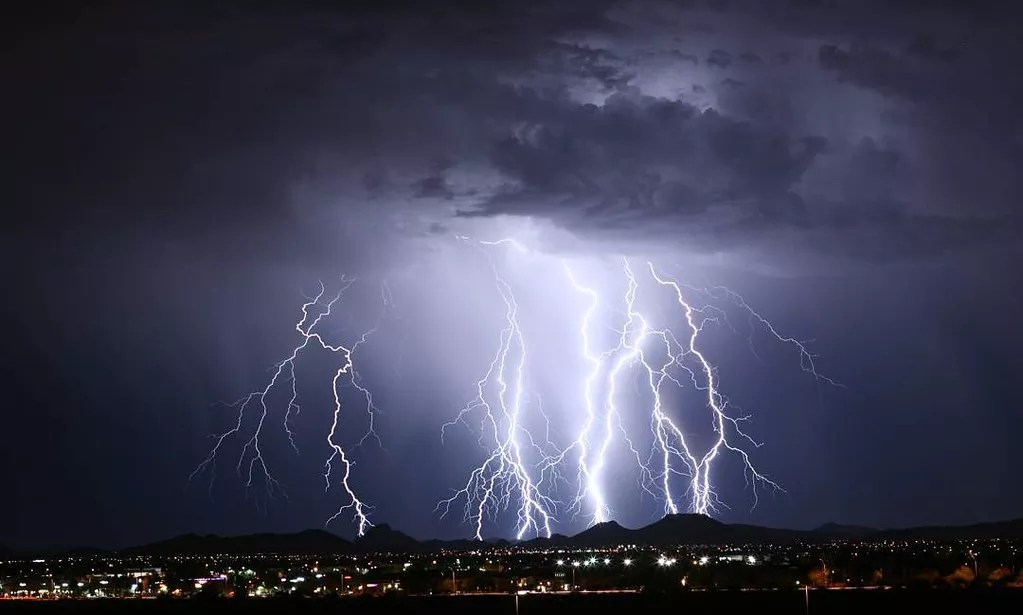
Abbee Day/Flickr/CC BY-NC-ND 2.0

Audio By Carbonatix
Monsoon season is officially over, coming to a close on Oct. 1. Now the rainfall tallies are in.
The National Weather Service’s Phoenix office tweeted on Wednesday that this year’s stormy season was wetter than usual thanks to a late summer surge in monsoon activity.
“Monsoon season started off slow but turned much wetter from late August through September,” the office said. “Much of our region ended the season with above normal precipitation.”
Indeed, forecasters predicted back in June that more rain than normal would come down on Phoenix during the season, which officially lasts from June 15 to Sept. 30.
In a graph posted on Wednesday, NWS listed the rainfall in several cities and towns across the state, as well as the average annual amount of rain each received from 1991 to 2020.
There was a fair amount of variability even within the Valley. While rainfall in Phoenix was just slightly above average at 2.76 inches, Deer Valley received nearly double its average total with 4.77 inches.
Over in Mesa, the total of 3.04 inches was lower than Mesa’s average — which is usually about 3.63 inches. Scottsdale’s total was slightly higher than normal at 2.65 inches.
Outside the Valley, other cities clocked higher-than-normal rainfall. East of the Phoenix metro area, Globe received a whopping 7.14 inches of rain, above its average of about 6 inches, leading to flooding last weekend that killed several people. Over on the other side of the state, Yuma experienced a wetter-than-normal monsoon season. The NWS tallied 2.18 inches of rain there, nearly doubling the average.
While the 2025 monsoon season wasn’t a historical one for the Valley, it was the wettest since 2021. It was also a much-needed, refreshing one for the desert floor than recent years have offered. The monsoon of 2024 and 2023 were among the driest in Phoenix history, seeing only 0.74 and 0.15 inches, respectively.